University of California, Irvine on Overleaf
Overview
University of California, Irvine is providing Overleaf Professional features for all students, faculty and staff who would like to use a collaborative, online LaTeX editor for their projects. Overleaf Professional features include real-time track changes, unlimited collaborators, and full document history.
Overleaf is designed to make the process of writing, editing and producing your research papers and project reports much quicker for both you and your collaborators. Overleaf can also be linked to other services to best fit into your workflow.
Claim your Overleaf Professional upgrade by signing up (or signing in) below. You'll need to verify a University of California, Irvine email address.
Join a community of over 12868 authors at University of California, Irvine
Quick Start
Welcome to the quick start guide to Overleaf. We've put together some useful resources and links in the sections below, and if you have any questions about how to get started please let us know and we'll be happy to help!
Learning
Try out the Overleaf editor with built in tutorial
If you'd like to dive straight into the editor, simply click the button to create a new paper using our quick-start template. A short tutorial will walk you through the main features to quickly get you started.
Browse the Overleaf template gallery
You can find a selection of featured templates, or check out our full template gallery for more ideas and inspiration.
Take our free course to quickly master the LaTeX essentials
If you're new to LaTeX, we've put together a free online course to help you learn the basics. If you have never used LaTeX before, or if it has been a while and you would like a refresher, this is the place to start.
Publishing
Find a journal template
Through our partnerships within the publishing community, we provide a selection of academic journal templates for articles and papers. These templates automatically format your manuscripts in the style required for submission to that journal.
Submit your articles to journals, repositories and more
You can also submit your paper directly to a number of journals and other editorial and review services via the publish menu in the editor. Simply open the publish menu from any document and follow the appropriate 'Submit to ...' link.
Collaborating
Turn on track changes for review when working with colleagues
Overleaf offers an impressive collection of collaboration features, including the powerful track changes feature.
Edit in Rich Text mode or directly in LaTeX
Overleaf provides an intuitive and easy-to-use manuscript editor (our rich text mode), which is especially useful if you or your co-authors aren't familiar with writing in LaTeX.
If you prefer to edit directly in LaTeX, you can! Overleaf provides a full collaborative online LaTeX editor you can switch to at any time.
Featured LaTeX Templates
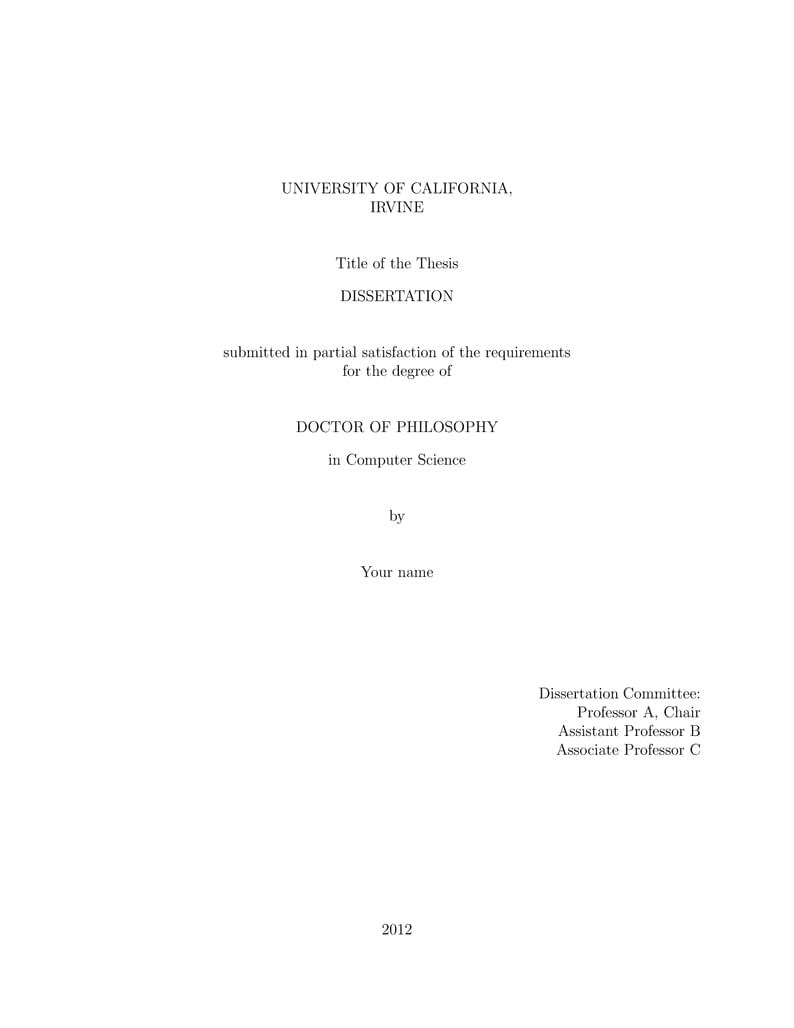
A LaTeX template for thesis and dissertation documents at UC Irvine. Queries and updates should be directed to https://github.com/lotten/uci-thesis-latex.
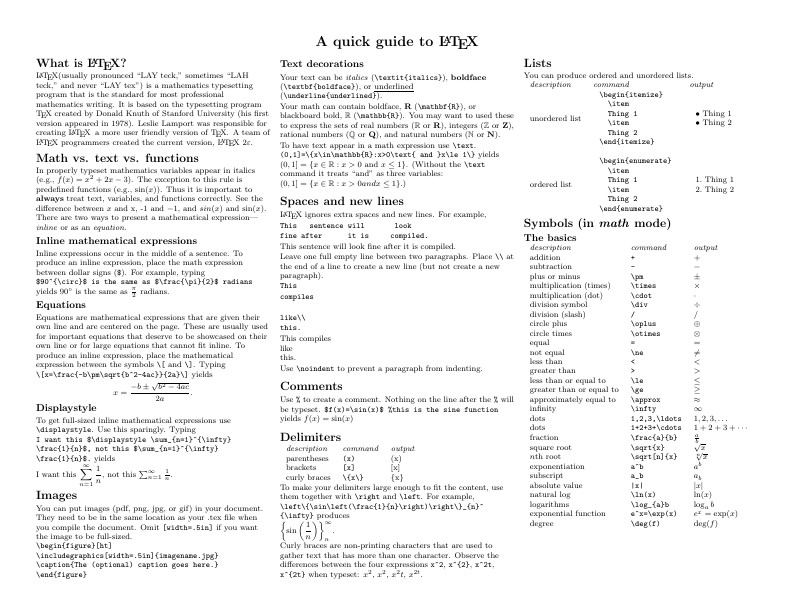
Know the LaTeX command you want to use but can't remember how to write it? Here we present a great tips sheet produced by Dave Richeson; it's pre-loaded in Overleaf so you can see how the commands work instantly. Simply click on the button above to open a version in Overleaf for editing (and to quickly copy and paste the commands you need!). For more comments visit this page on Dave's site, or if you'd like to work through a fuller introduction to LaTeX why not check out our free online course?
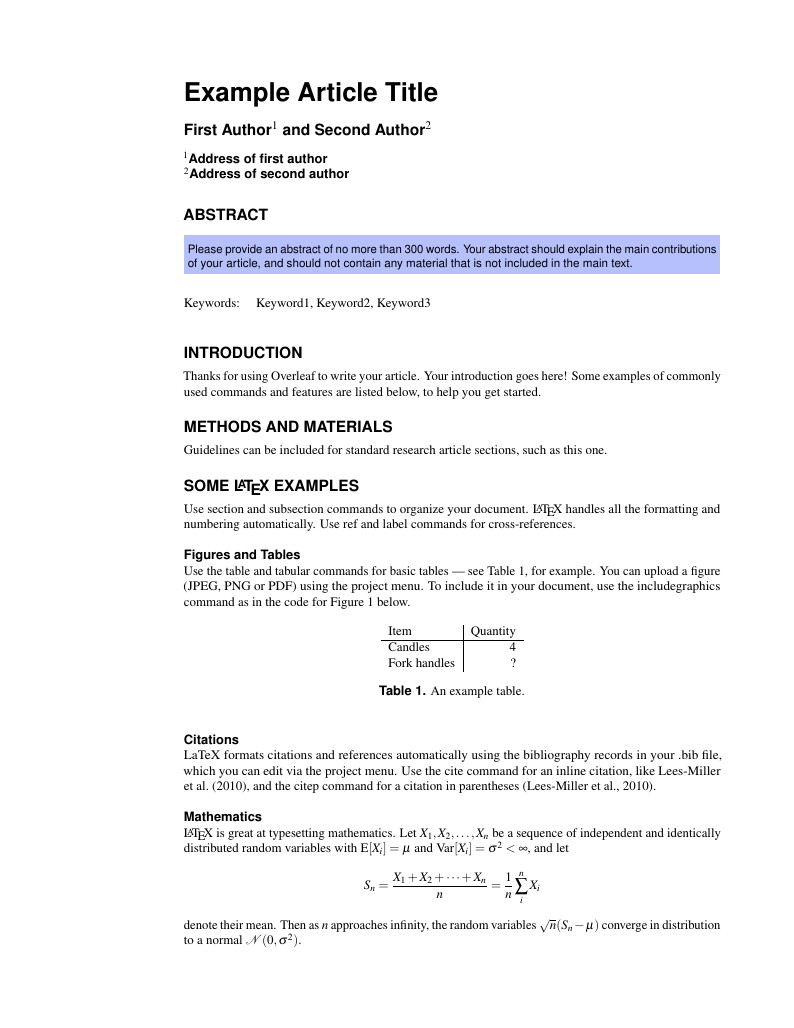
This is a basic journal article template which includes metadata fields for multiple authors, affiliations and keywords. It is also set up to use the lineno package for line numbers; these can be turned on by adding the 'lineno' option to the documentclass command.
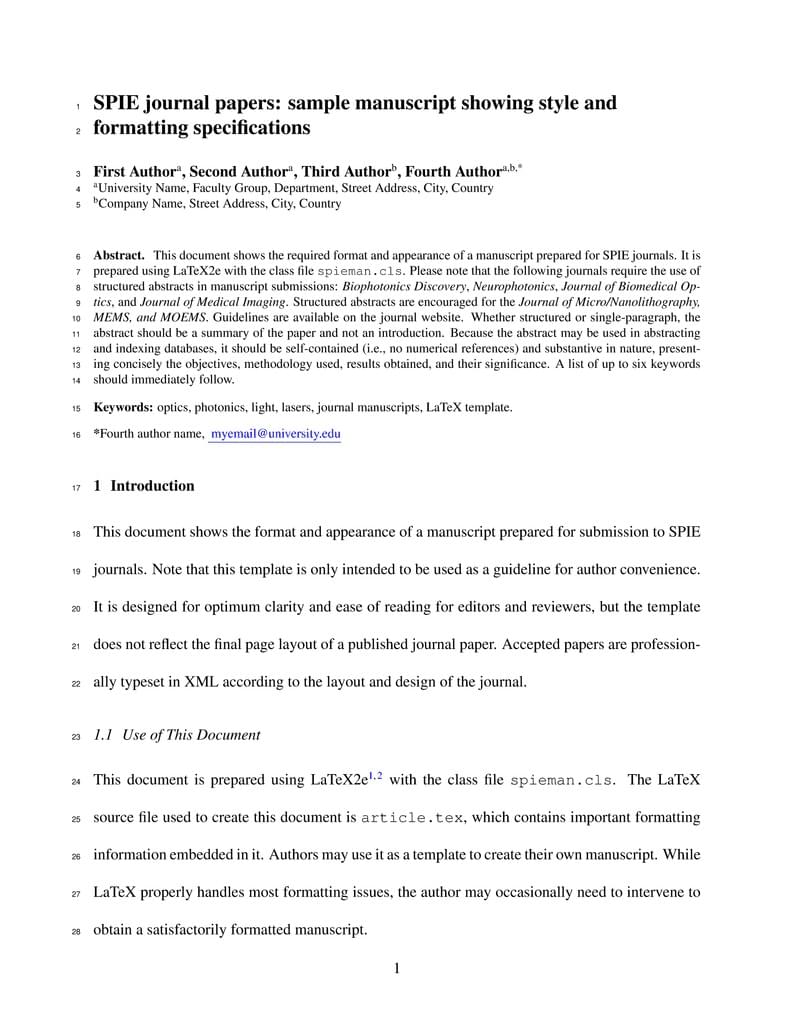
This template is for authors submitting a manuscript to an SPIE journal. The Overleaf template allows journal authors to write, edit, and collaborate online. Authors can then submit the paper to an SPIE journal by downloading the PDF and source files generated from Overleaf. Detailed author guidelines for SPIE journals can be found at http://spie.org/AuthorGuidelines.
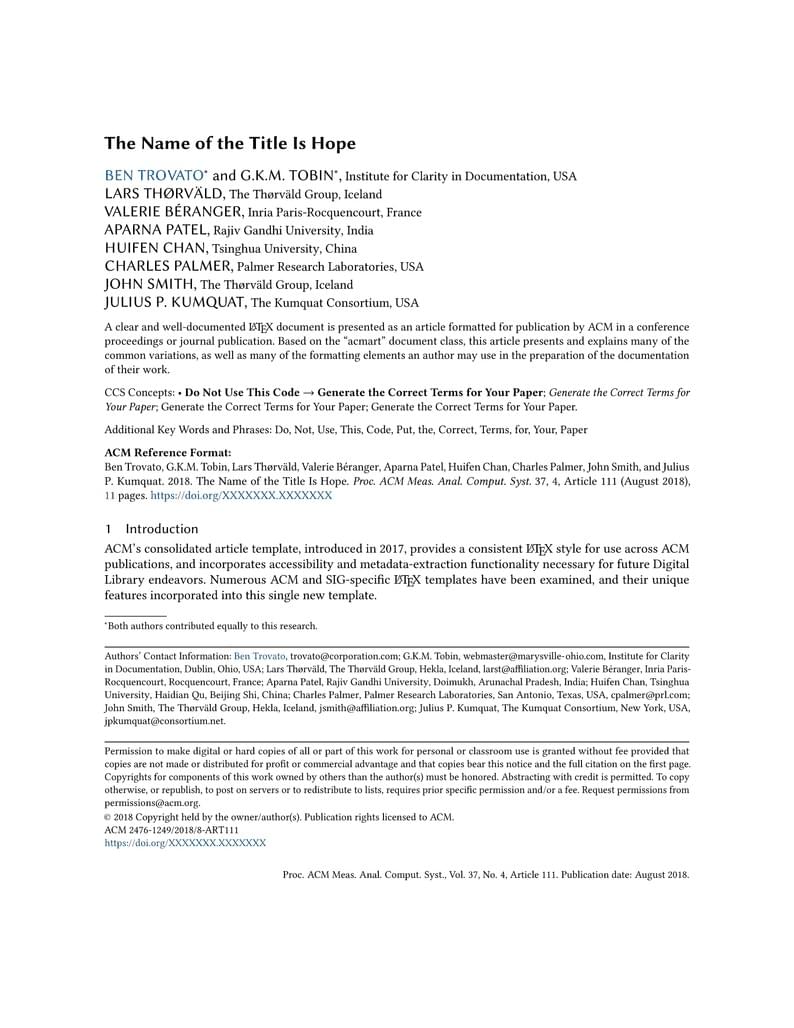
This is a sample file for ACM large trim, single column journals, using acmart.cls v2.16 (2025/08/28). This template is provided by the ACM - please see the ACM Submission Guidelines page for more details on manuscript preparation. Important information regarding submission versions for review: After finalizing the formatting of your paper you must use the option “manuscript” with \documentclass[manuscript]{acmart} command. This will generate the output in single column review format which is required. Accepted manuscripts will be transformed during production to produce properly formatted output accord to the publication specifications. Authors will be provided the opportunity to review and approve the formatted output before the article is published to the ACM Digital Library. This large single column format is used for submissions to: Digital Threats: Research and Practice (DTRAP) ACM Transactions on Computing for Healthcare (HEALTH) The Proceedings of the ACM on Interactive, Mobile, Wearable and Ubiquitous Technologies (IMWUT) ACM Journal on Computing and Cultural Heritage (JOCCH) PACM on Programming Languages (PACMPL) Proceedings of the ACM on Measurement and Analysis of Computing Systems (POMACS) ACM Transactions on Applied Perception (TAP) Proceedings of the ACM on Human-Computer Interaction (PACMHCI) Once your article is complete, you can use 'Submit to ACM' button at the top of the Overleaf (formerly writeLaTeX) editor bar to quickly download your paper files and go straight to the appropriate ACM submission site.
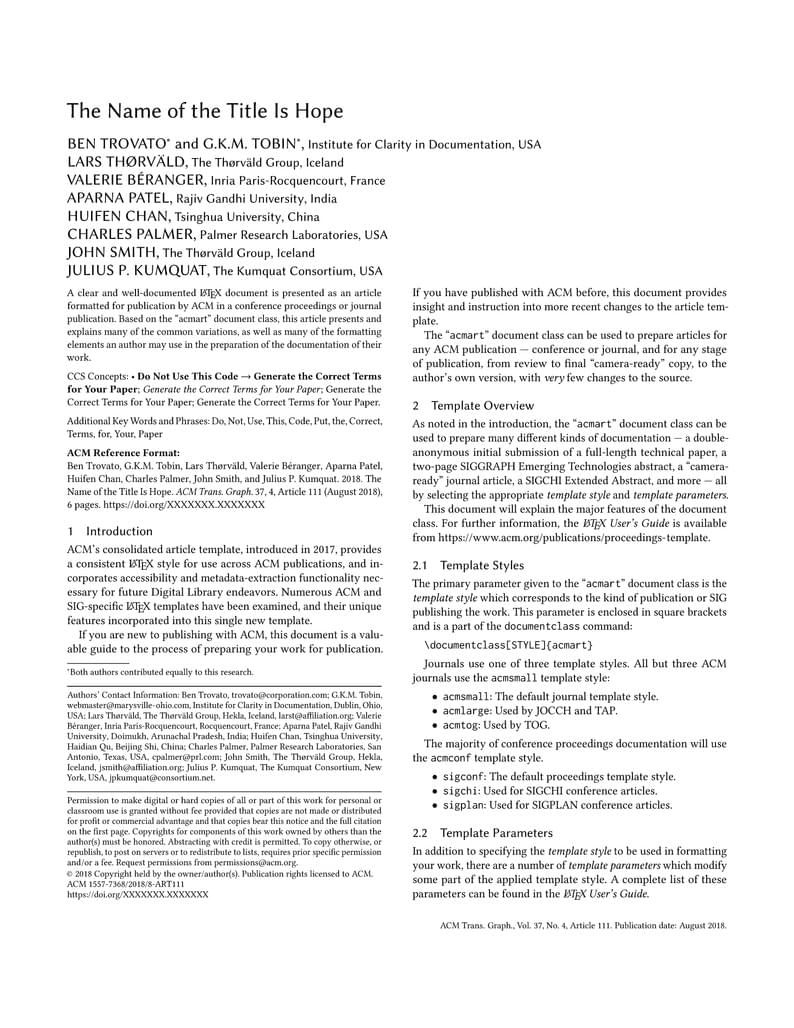
This is a sample file for ACM large trim, 2-column journals, specifically showing an example of a paper for ACM Transactions on Graphics, using acmart.cls v2.16 (2025/08/28). It is provided by the ACM as a template for submissions, and pre-loaded in Overleaf (formerly writeLaTeX) for ease of editing online. Please see the ACM Submission Guidelines page for more details on manuscript preparation. This large double column format is used for submissions to ACM Transactions on Graphics (TOG). Once your article is complete, you can use 'Submit to ACM' button at the top of the Overleaf editor bar to quickly download your paper files and go straight to the appropriate ACM submission site. Important information regarding submission versions for review: After finalizing the formatting of your paper you must use the option “manuscript” with \documentclass[manuscript]{acmart} command. This will generate the output in single column review format which is required. Accepted manuscripts will be transformed during production to produce properly formatted output accord to the publication specifications. Authors will be provided the opportunity to review and approve the formatted output before the article is published to the ACM Digital Library.
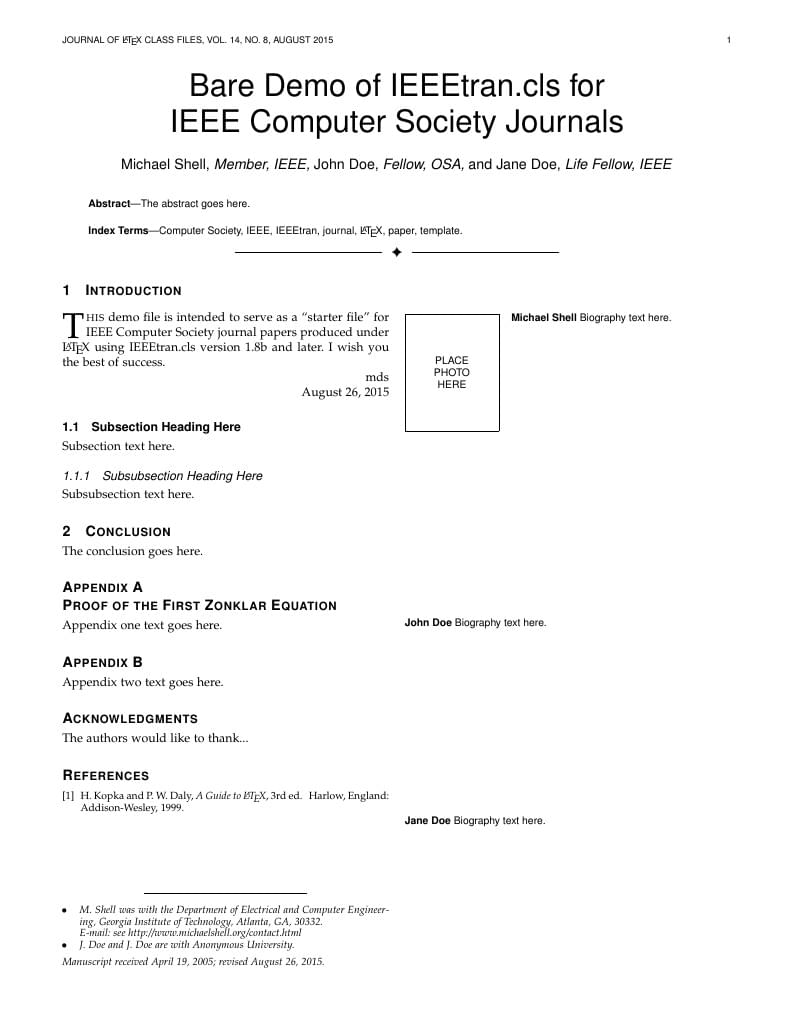
The IEEE provides guidelines for the preparation of papers and presentations for their conference proceedings, including a series of LaTeX templates. A number of templates using the IEEE style are available on Overleaf to help you get started - click above to use this template for Computer Science journals, or use the tags below to find more. IEEEtran.cls version: 1.8b
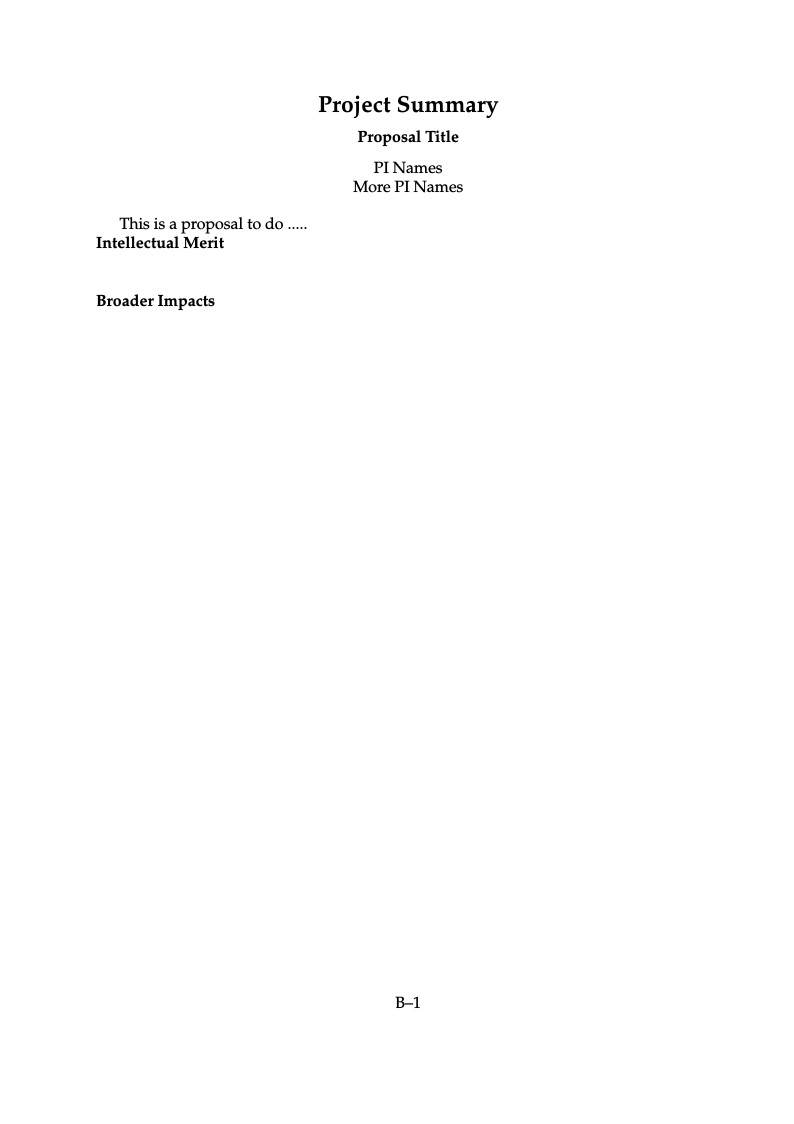
This template provides a style file for the easy preparations of NSF grant proposals. As part of the template, a list of pre-defined journal abbreviation commands are included, for easy reference in your proposal. See also the NSF biographical sketch ("biosketch") template available here.
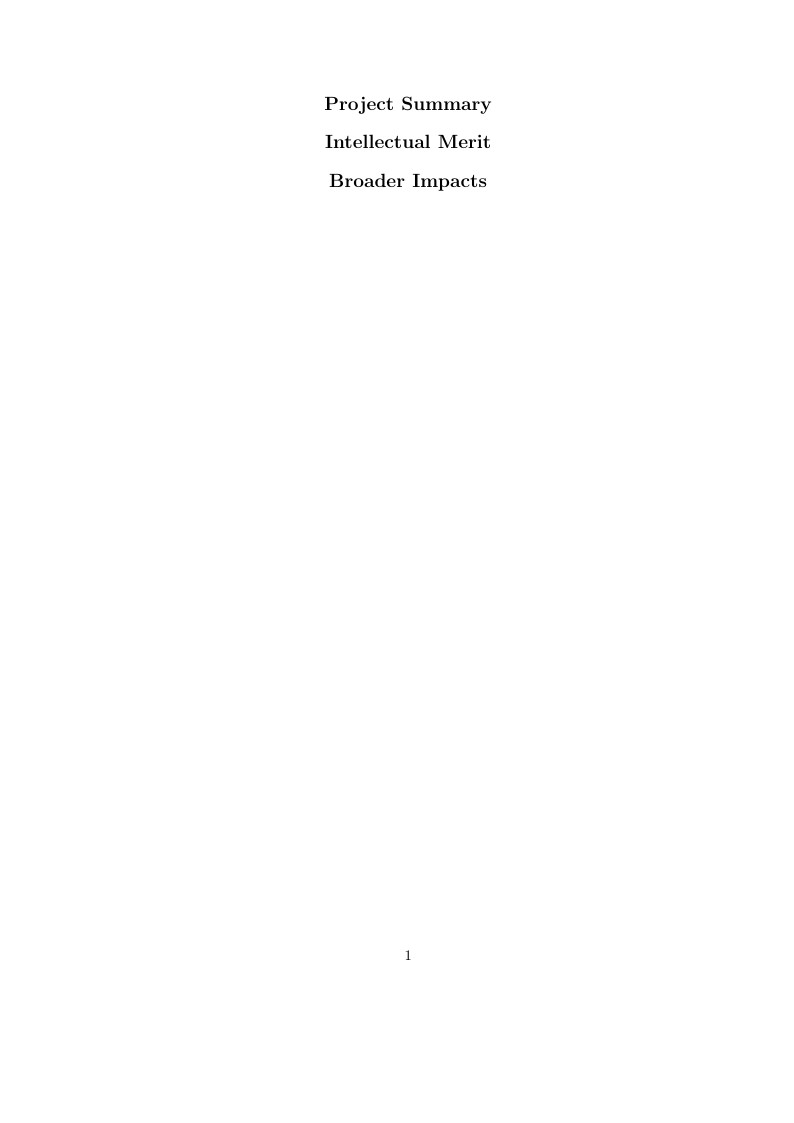
This template provides a structure for preparing NSF grant applications according to their formatting guidelines It is provided by MIT-MATH to help you use LaTeX for writing your NSF proposals. Please start by reading MIT-MATH's instructions in the Guide to Using the NSFmaster Template, and then click the button above to open the template for editing online with Overleaf.
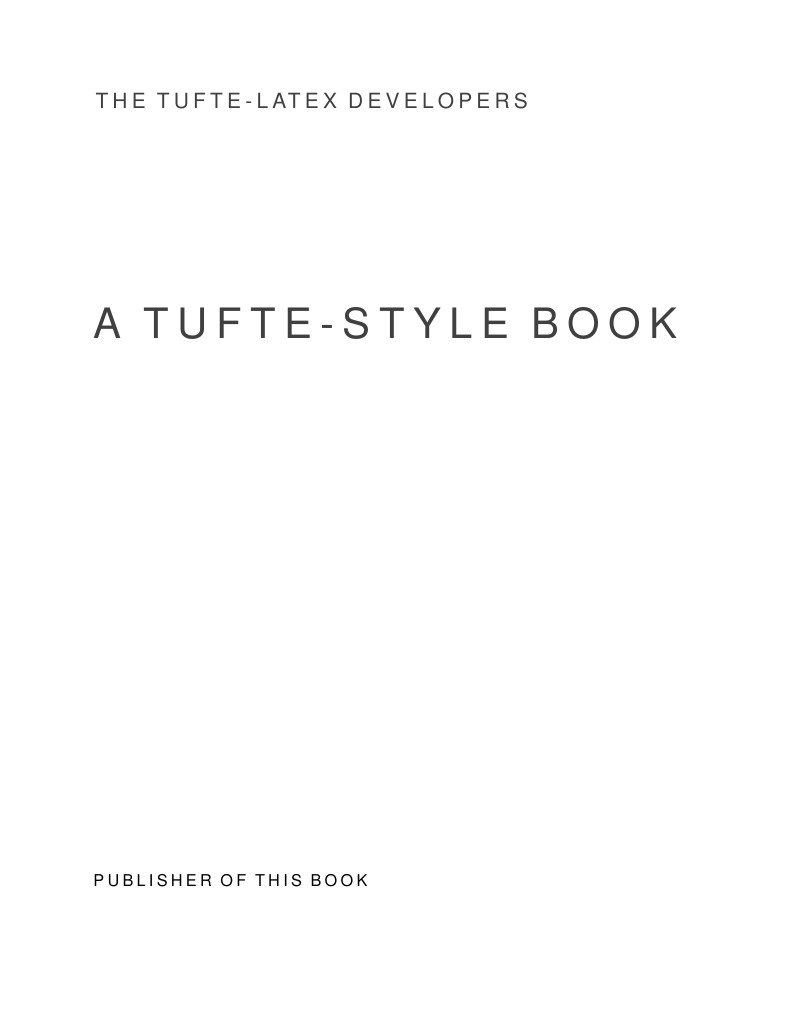
Edward Tufte is a pioneer in the field of data visualization, and his works inspired the creation of two LaTeX classes for books and handouts. Here we present the excellent sample book produced by the The Tufte-LaTeX Developers pre-loaded into Overleaf (formerly writeLaTeX) for you to use as a starting point for your own work. Simply click the button above to use Overleaf to create and edit your article - there's nothing to install and no sign up required. When you're finished, use our integrated publish to figshare option to publish your work freely online. Click here if you'd like to try the corresponding Tufte handout design on Overleaf. PS: If you're new to LaTeX, our free online LaTeX course covers all the steps you need to get you started.
FAQ & Help
Who should I contact if I have questions about Overleaf or the University of California, Irvine license?
Please use our contact form and we'll make sure your question gets to the right person in our team.
You can also direct UC Irvine-specific questions to Mitchell Brown, Scholarly Communications Coordinator.
Resources for Thesis Preparation
Graduate DivisionUCI Thesis and Dissertation Formatting Manual
LibGuide - Overleaf for Scholarly Writing and Publishing
I'm new to Overleaf, how should I get started?
We've put together a short How do I use Overleaf help page to give you pointers on exactly that :)
How do I upload an existing LaTeX project into Overleaf?
Here's an FAQ on how to import existing LaTeX documents into Overleaf.
What packages does Overleaf support?
Overleaf supports the packages listed here.